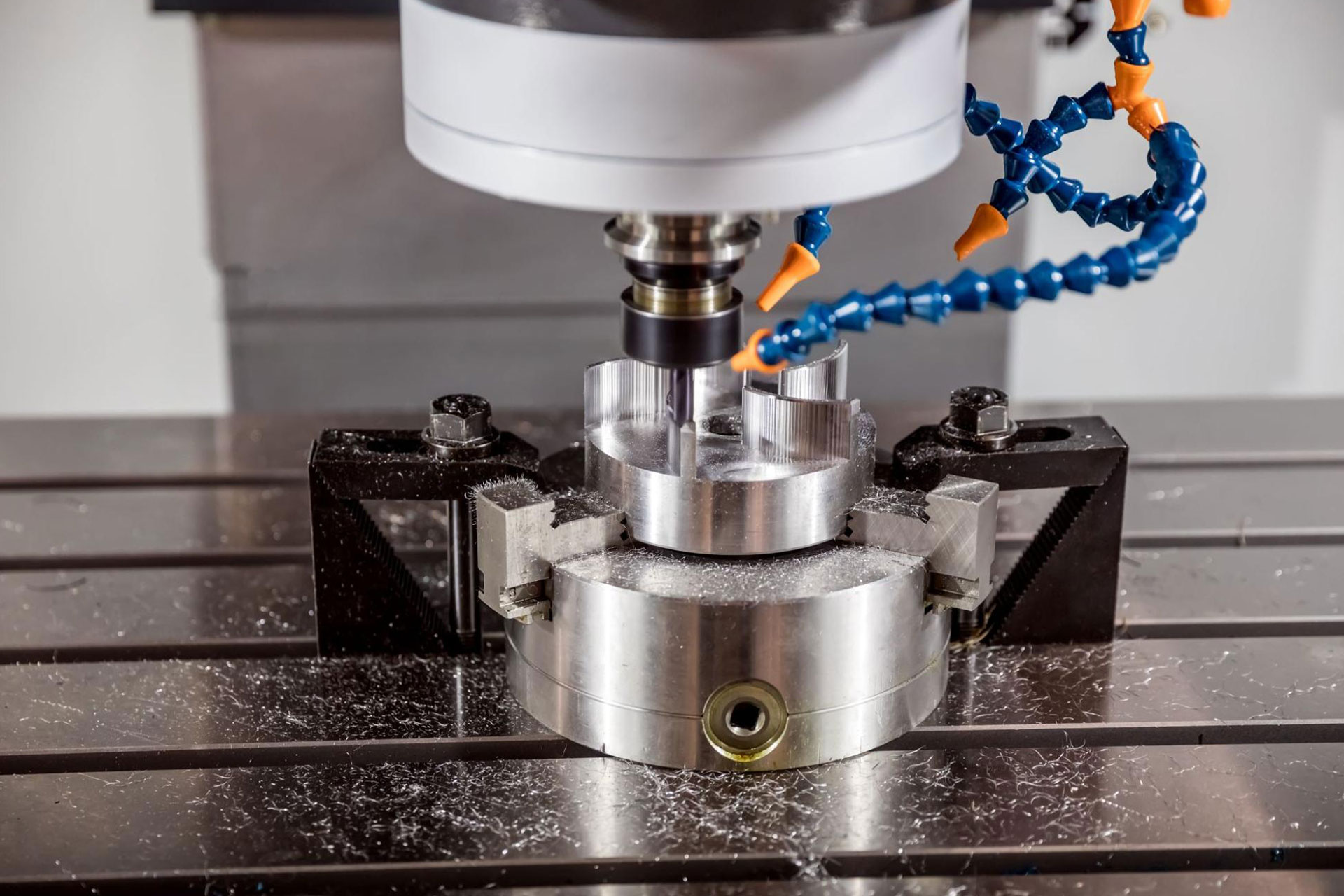8 CNC Milling: Practical Tips for Successful CNC Milling Projects

CNC milling is a versatile and precise manufacturing process used in various industries, ranging from automotive to aerospace. With the ability to create complex and intricate designs, CNC milling has become an indispensable tool for modern manufacturing. However, to ensure successful CNC milling projects, it’s equally important to understand the process and implement certain practical tips.
In this blog, we will be providing you with tips and techniques that can help you achieve excellent results in your CNC milling endeavors.
Related: A Guide to What CNC Milling is All About
1. Material Selection
Choosing the right material is crucial for CNC milling projects. So you have to consider factors such as the material’s hardness, machinability, and compatibility with your desired design. Moreover, it’s advisable to research the properties of different materials and select the one that best suits your project requirements. Common materials used in CNC milling include metals like aluminum, brass, and steel, as well as plastics like acrylic and nylon.
2. Tool Selection
Selecting the appropriate cutting tools is essential for achieving precision and efficiency in CNC milling. Factors such as tool material, geometry, and coatings can significantly impact the machining process. Carbide (a compound, where carbon and metal are combined) and high-speed steel (HSS) are commonly used tool materials due to their durability and heat resistance. If you are unfamiliar with these tools, consult first with tooling experts or manufacturers to determine the best tools for your specific project.
3. Proper Machine Setup
Before starting a CNC milling project, ensure your machine is set up correctly. Pay attention to spindle speed, feed rate, and depth of cut to avoid unnecessary wear on the tool and workpiece. Additionally, properly securing the workpiece and using clamps or vises will prevent movement or vibrations during the milling process, ensuring accurate and consistent results.
4. Toolpath Optimization
Efficient toolpath planning is crucial to minimize machining time and maximize productivity. Utilize CAM (Computer-Aided Manufacturing) software to generate optimized toolpaths that reduce unnecessary movements and optimize cutting strategies. We also suggest that you experiment with different toolpath options and consult machining experts to achieve the best results for your specific project.
5. Tool Maintenance
Regular maintenance of cutting tools is essential to maintain their performance and prolong their lifespan. Keep the tools clean and free from chips and debris, and regularly inspect for wear or damage. See to it as well that you replace worn or damaged tools promptly to ensure consistent results and prevent damage to the workpiece or the machine itself.
6. Workpiece Fixturing
Properly fitting the workpiece is essential for accuracy and repeatability. Use fixtures, clamps, or custom-designed work holding solutions to securely hold the workpiece in place during milling. You should also take into consideration factors such as accessibility, rigidity, and ease of setup when designing or selecting fixtures.
7. Test Cuts and Iteration
Before machining the final product, perform test cuts on similar materials or prototypes. This allows you to fine-tune the machining parameters, toolpath strategies, and validate the design. Performing iteration and refinement based on test results can help avoid costly errors and improve the overall quality of the final product.
8. Quality Control and Inspection
Implement a robust quality control process throughout your CNC milling project. Make it a practice to regularly inspect the machined parts using measuring tools like calipers, micrometers, or coordinate measuring machines (CMM). Check for dimensional accuracy, surface finish, and other critical parameters to ensure the desired quality standards are met.
Remember to continuously learn and adapt your techniques based on the project requirements, and consult with experts or experienced machinists for guidance when needed. With careful planning and attention to detail, you can achieve precision, and efficiency in your CNC milling projects.
Looking for quality CNC milling in the Philippines? Contact us today to know more about our products!


 3D Printing
3D Printing  CNC Lathe
CNC Lathe  Desktop Filament Making
Desktop Filament Making  3D Scanning
3D Scanning  CNC Milling
CNC Milling  Packaging & Labeling
Packaging & Labeling  Bandsaw Cutting
Bandsaw Cutting  CNC Router
CNC Router  Vacuum Forming
Vacuum Forming  CNC Industrial
CNC Industrial  CNC Surface Grinding
CNC Surface Grinding  Waterjet Cutter
Waterjet Cutter 















